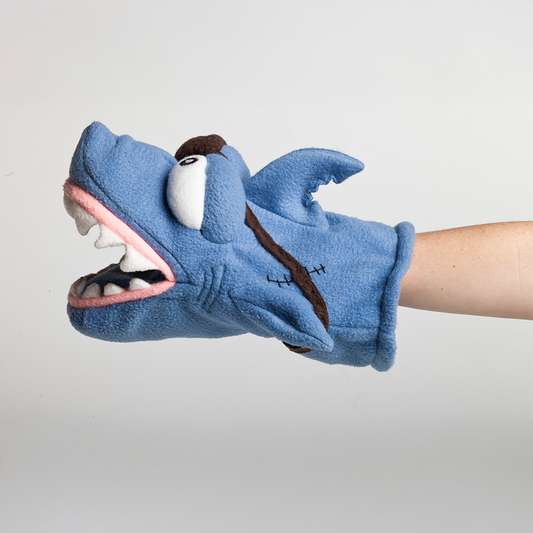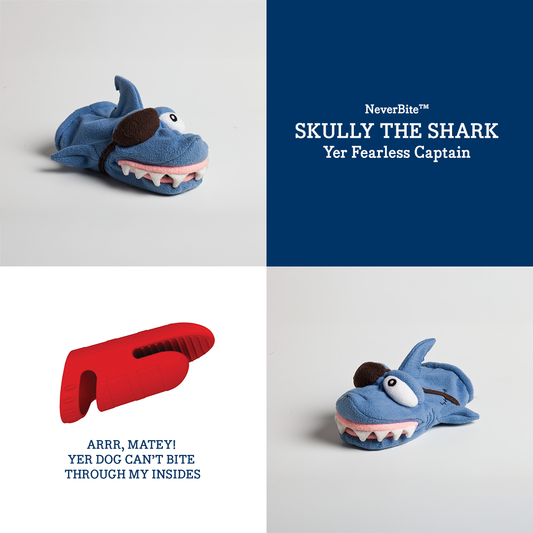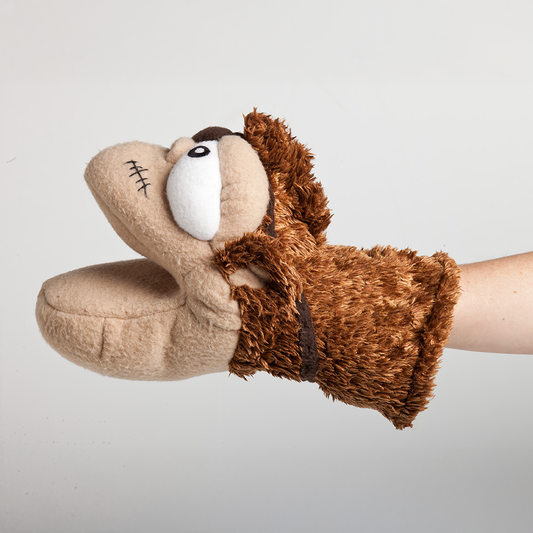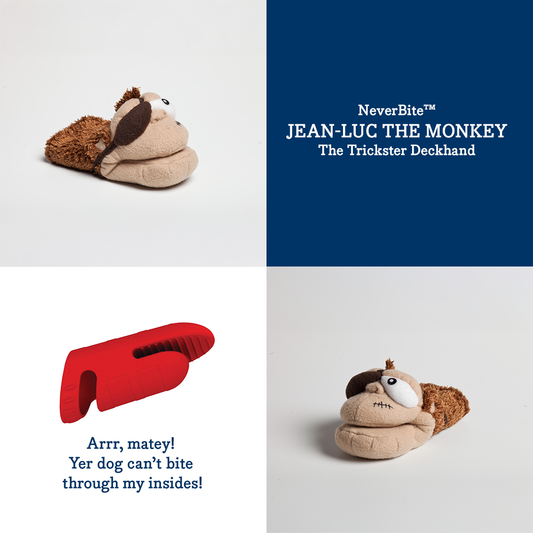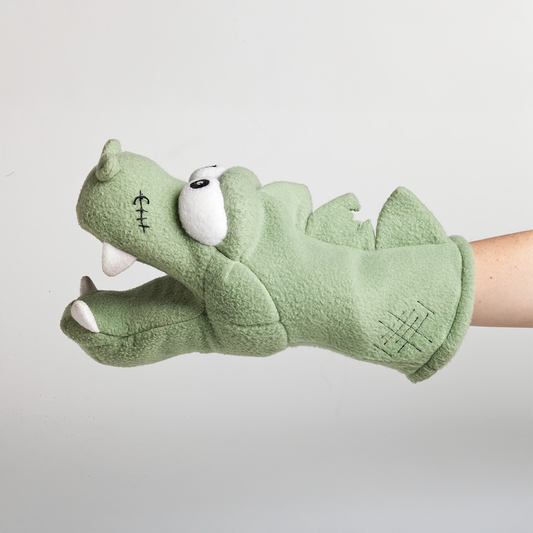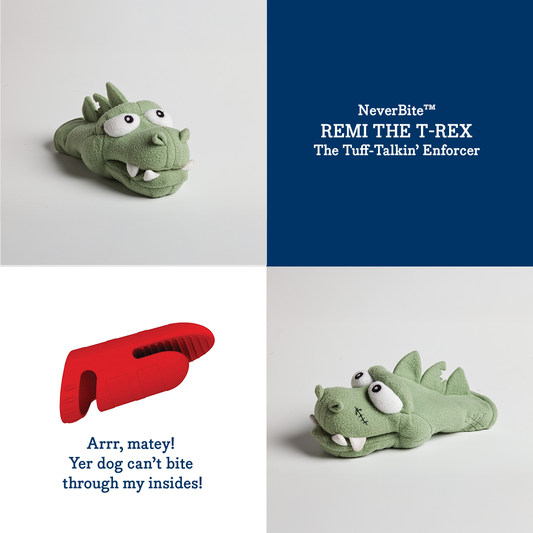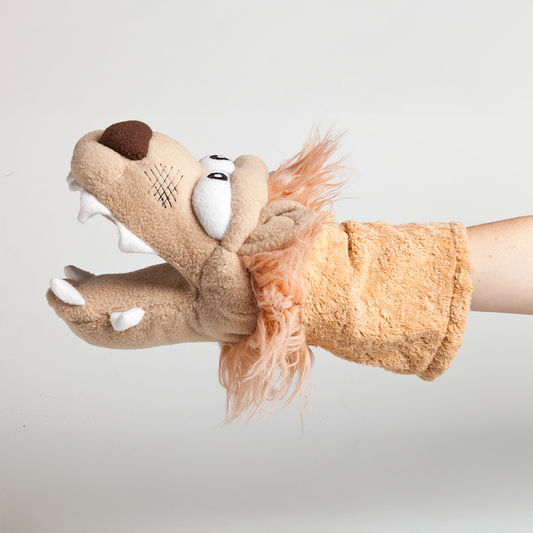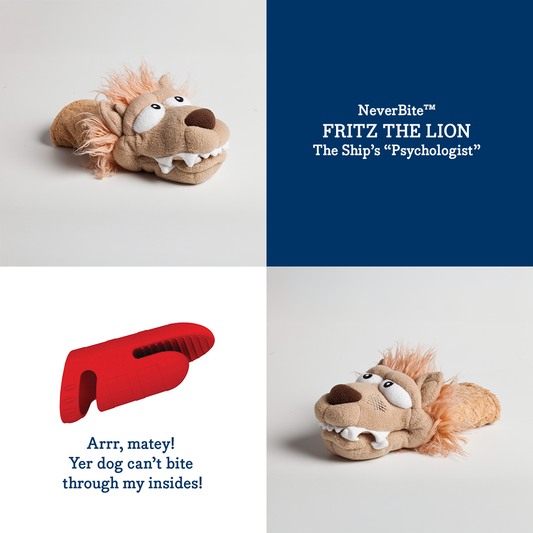
Why Puppies Bite During Play—and How to Handle It
Chewy ChumsShare
Play biting isn’t bad—it’s development.
Puppies bite during play because it’s how they learn about the world. But without redirection, that habit can follow them into adulthood.
Here’s how to handle play biting without fear, frustration, or endless scolding.
Why Puppies Bite When They Play
- Practicing social cues
- Testing boundaries
- Teething discomfort
- Overstimulation or lack of redirection
They’re not trying to be dominant—they’re learning by doing.
What Not to Do
- Don’t punish or shout
- Don’t push them away with your hands
- Don’t let them bite fingers, even in fun
These responses confuse the pup and delay learning.
What To Do Instead
- Redirect to a Toy – Always have a training toy like NeverBite™ nearby
- Engage With Structure – Teach commands like “gentle,” “drop it,” and “leave it”
- Stop Play if Needed – Use short timeouts (30–60 seconds)
- Reward Calm Behavior – Reinforce the play you want to see
Why NeverBite™ Helps You Teach Better Play
- Designed for hand-controlled redirection
- Safe for tug, teething, and training
- Reinforces bite boundaries naturally
- Helps puppies associate hands with guidance—not targets
- More features & benefits
Final Word From the Crew
Puppy play should be fun, but it should also teach. With the right tools, every tug becomes a training moment.
🏴☠️ NeverBite™ helps pups play fair—and keeps your hands out of the bite zone.



